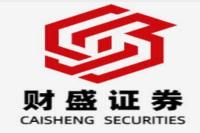Revving Up the Future: Deep Dive into Sino-German Electric Vehicle Collaboration
Meta Description: Explore the burgeoning partnership between China and Germany in the electric vehicle (EV) sector. This in-depth analysis examines joint projects, strategic collaborations, and the future trajectory of this crucial industry alliance, highlighting key challenges and opportunities. #ElectricVehicles #SinoGermanCooperation #EVTechnology #AutomotiveIndustry #GreenEnergy
The hum of electric motors isn't just a sound of the future; it's the soundtrack of a global revolution. And at the heart of this revolution lies a powerful partnership: the collaboration between China and Germany in the electric vehicle (EV) industry. This isn't just about building cars; it's about forging a path towards sustainable transportation, creating innovative technologies, and reshaping global economic landscapes. Think of it as a high-stakes game of chess, where both nations are strategically maneuvering to secure a leading position in the burgeoning EV market. The stakes are high, the competition fierce, but the potential rewards are astronomical. This article delves deep into the nitty-gritty details of this exciting collaboration, providing a comprehensive overview of its past successes, present challenges, and future prospects. We'll unpack the strategic alliances, dissect the technological advancements, and analyze the geopolitical implications of this significant partnership. Get ready to buckle up, because this is one ride you won't want to miss! We'll unravel the complexities, explore the nuances, and ultimately provide you with a clear picture of this dynamic and ever-evolving landscape. So, let's hit the gas and explore the electrifying world of Sino-German EV collaboration!
Sino-German Electric Vehicle Cooperation: A Strategic Partnership
The recent 8th meeting of the Sino-German Electric Vehicle Cooperation Guiding Committee, held virtually in December 2024, underscored the growing importance of this strategic partnership. Co-chaired by high-ranking officials from both the Chinese Ministry of Science and Technology and the German Federal Ministry of Digital and Transport, the meeting wasn't just a formality; it was a crucial platform for strategic planning and progress assessment. The discussions were far-reaching, covering a wide spectrum of issues, from aligning national EV strategies to reviewing the progress of the Sino-German Electric Vehicle Innovation Support Center. The commitment to collaborative research on joint projects was also a key talking point, showcasing the deep-rooted nature of this partnership. The decision to hold the next meeting in China in 2025 further emphasizes the collaborative spirit and the strong commitment of both nations to this venture.
This collaboration isn't a fleeting trend; it’s a strategic imperative for both countries. Germany, a powerhouse in automotive engineering and manufacturing, brings its expertise in high-precision manufacturing, sophisticated engineering, and established supply chains to the table. China, on the other hand, boasts a massive domestic market, a rapidly expanding charging infrastructure, and a burgeoning battery technology sector. This complementary relationship forms the bedrock of a powerful synergy, allowing both nations to leverage each other's strengths to achieve common goals. It’s like a perfectly orchestrated symphony, where each instrument plays its part to create a harmonious masterpiece.
Key Areas of Collaboration:
-
Technological Innovation: Joint research initiatives focus on improving battery technology, enhancing charging infrastructure, and developing cutting-edge electric powertrains. This collaborative approach accelerates innovation and reduces the time-to-market for new technologies. It's a win-win situation, speeding up the overall progress of the industry.
-
Supply Chain Optimization: The partnership aims to optimize the global supply chain for EV components, reducing reliance on single-source suppliers and mitigating geopolitical risks. This diversification strategy enhances resilience and ensures the long-term stability of the industry. This is crucial, given the current geopolitical climate.
-
Market Development: Both nations are working together to expand the market for electric vehicles, both domestically and internationally. This includes promoting the adoption of EVs through supportive policies, public awareness campaigns, and the development of charging infrastructure. The combined efforts are expected to significantly accelerate EV adoption globally.
-
Standard Harmonization: Efforts are underway to harmonize technical standards and regulations for electric vehicles, facilitating cross-border trade and promoting interoperability. This streamlining process reduces barriers to entry and promotes a more unified and efficient market.
The collaboration isn’t merely confined to the exchange of technical expertise and the sharing of resources. It also involves significant investment in joint ventures, research projects, and infrastructure development. This substantial financial commitment underscores the seriousness and long-term vision of this partnership. It’s a clear demonstration that both nations are deeply invested in the success of this initiative.
Challenges and Opportunities
While the partnership offers tremendous opportunities, it also faces some significant hurdles. These include:
-
Geopolitical Tensions: The evolving geopolitical landscape presents challenges to maintaining a consistently smooth collaborative relationship. Navigating these complexities requires careful diplomacy and a strong commitment to mutual understanding and respect.
-
Competition: The EV market is fiercely competitive, with other major players vying for market share. Maintaining a competitive edge requires constant innovation and a willingness to adapt to rapidly changing market dynamics.
-
Technological Gaps: Bridging the technological divide between the two countries requires significant investment in research and development, and the commitment to sharing knowledge and expertise.
-
Regulatory Hurdles: Differing regulations and standards in both countries can create challenges for cross-border cooperation. Overcoming these hurdles requires harmonization efforts and effective regulatory frameworks.
Despite these challenges, the opportunities are too significant to ignore. The potential for joint innovation, market expansion, and economic growth is enormous. The partnership is poised to shape the future of the global EV industry and contribute to a more sustainable transportation future. It's a testament to the power of international collaboration in addressing global challenges. Moreover, the collaboration is not only economically beneficial; it also contributes to environmental sustainability, a shared global priority.
The Future of Sino-German EV Collaboration
The future of the Sino-German electric vehicle partnership looks bright. The continued commitment from both governments, the ongoing collaborative projects, and the significant investments all point towards a sustained and successful partnership. Building on the existing framework, both countries are likely to further strengthen their ties through:
-
Increased R&D investment: Expect to see a significant increase in joint research and development activities focusing on advanced battery technologies, autonomous driving systems, and smart charging infrastructure.
-
Expansion of joint ventures: The number of joint ventures and collaborations between Chinese and German EV companies is likely to increase, leading to greater market penetration and innovation.
-
Strengthened supply chain integrations: Further efforts to optimize and diversify the global supply chain will enhance the resilience and competitiveness of the EV industry.
-
Greater focus on sustainability: Expect a greater emphasis on environmental sustainability, with initiatives to reduce carbon emissions throughout the entire EV lifecycle.
The Sino-German EV partnership is much more than just a commercial endeavor; it's a testament to the enduring power of international collaboration in achieving shared goals. It's a compelling example of how two nations can leverage their unique strengths to create a truly positive impact on the global stage. This partnership is not just shaping the future of the automotive industry; it's helping to pave the way for a more sustainable and efficient transportation system for the world.
Frequently Asked Questions (FAQs)
Q1: What are the main benefits of the Sino-German EV collaboration?
A1: The collaboration offers numerous benefits, including accelerated technological innovation, optimized supply chains, expanded market access, and harmonized standards, ultimately leading to faster adoption of EVs globally and promoting a more sustainable transportation system.
Q2: What are the major challenges facing this partnership?
A2: Major challenges include navigating geopolitical complexities, managing intense competition, bridging technological gaps, and overcoming regulatory hurdles. Successful navigation of these challenges requires strong commitment, diplomacy, and adaptability.
Q3: How does the collaboration promote sustainability?
A3: The collaboration promotes sustainability by accelerating the adoption of electric vehicles, which are significantly less polluting than traditional combustion engine vehicles, contributing to a reduction in greenhouse gas emissions and improved air quality.
Q4: What role does the Sino-German Electric Vehicle Innovation Support Center play?
A4: This center serves as a crucial platform for facilitating collaboration, knowledge sharing, and joint research projects between Chinese and German institutions and companies in the EV sector. It's a hub for driving innovation and accelerating technological advancements.
Q5: What is the future outlook for this partnership?
A5: The future outlook is positive, with continued government support, increased investment in R&D, and the potential for further expansion of joint ventures and collaborations. The partnership is poised to remain a key driver of innovation and growth in the global EV industry.
Q6: How does this partnership impact the global EV market?
A6: The partnership significantly impacts the global EV market by accelerating technological advancements, optimizing supply chains, and increasing the overall competitiveness of the industry. It's a force shaping the future of sustainable transportation globally.
Conclusion
The Sino-German partnership in the electric vehicle sector represents a powerful alliance, driven by mutual benefits and a shared vision for a sustainable future. While challenges remain, the potential rewards – in terms of technological innovation, economic growth, and environmental progress – are substantial. This collaboration serves as a compelling example of how international cooperation can effectively tackle global challenges and create a more sustainable and prosperous world. The road ahead is paved with exciting possibilities, and the journey promises to be both electrifying and transformative.



